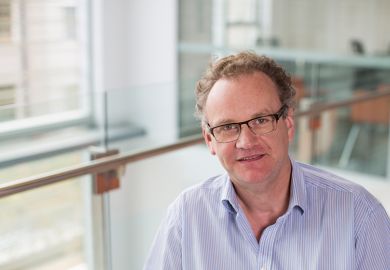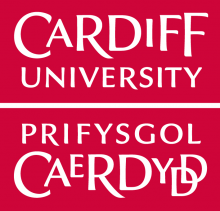Vanessa Toulmin is research director of the National Fairground Archive at the University of Sheffield, where she is director of city and culture in its Office of Partnership and Regional Engagement. Professor Toulmin will host a talk, titled “Sisterhood of the Ring”, on the role of female circus performers, in Sheffield on 21 November as part of Being Human: A Festival of the Humanities. The festival, led by the School of Advanced Study, University of London, in partnership with the Arts and Humanities Research Council and the British Academy, will host hundreds of free events across the UK between 15 and 24 November.
Where and when were you born?
The Winter Gardens fairground in Morecambe, Lancashire, in 1967.
How has this shaped you?
Everything I do in academia I learned from the fairground. It taught me how to collaborate with others, gave me the confidence to manage relationships and strike a good deal. It also, sadly, taught me how to face prejudice and how people’s expectations of you are marked by their perceptions of your background.
Did you excel at school?
My school years were marked by low attendance, low expectations and bullying. But I applied – and was accepted – to university [in Sheffield] despite my school telling me to lower my expectations and go to a polytechnic.
What kind of undergraduate were you?
I was a wild party girl – archaeology is the rock ’n’ roll of the arts, and we partied hard and worked hard. There was a small, raucous group from which nearly all of us went into history, heritage or museums, thanks, in large part, to my department, [which was] egalitarian, academically on top of its subject and created opportunities for its graduates.
What divided your life into a ‘before’ and ‘after’?
I’d been invited as an archaeologist to dig in Jordan, but the first Iraq war broke out in 1991 so it was impossible to get there. At the same time, my favourite uncle in Wales died, and my mother asked me to go and look after my aunt on the fairground. I was 25 and drifting along, but I had a Damascene moment realising that I had lost all the history of my own family because my uncle was illiterate. I returned to university, was awarded a Wingate scholarship, then a full PhD scholarship, and set up the National Fairground Archive as a postgraduate – and the rest is history.
What’s your most memorable moment at university?
My most memorable occasion in the eyes of my colleagues is probably my professorial lecture in 2009. I had burlesque performers, latex-clad sword swallowers and a troupe of 6ft insects demonstrating the links between films and early entertainment. There were no complaints apart from one from a member of the audience, who objected to my use of the word “intermediality”, claiming that because it was not in the dictionary, that I had made this up.
What is the National Fairground Archive’s importance?
It has been fundamental in highlighting the importance of the travelling fairgrounds and circus in the story of entertainment and society. It has been important in legitimising our lifestyle in the eyes of non-Travellers because it was seen as worthy of being collected, preserved and studied in an academic institution.
How has your showground family background influenced your teaching method?
I come from an oral tradition, where books were pretty absent, so you learned everything in your head – my memory is my greatest asset. When I give lectures, I never use notes – I tell a story or narrative and always seek to challenge but entertain.
Last year, The Greatest Showman became an unexpected Hollywood hit movie. Does its box-office success indicate a renewed interest in the circus world?
That film has no relation to circus history today or then, but it has increased interest in musicals and also in the life and legend that was P. T. Barnum, so that can only be good. The circus has never stopped being an essential and globally important part of our entertainment world. There are more circus companies than opera companies in the UK today, but nobody asks if opera has a long-term future. You can see circus in the West End, the fields of Glastonbury and the Edinburgh Festival, or in your village or local park. What other art form is as adaptable and moveable?
Women are often seen to play second fiddle to men in the circus world. Is that likely to change soon?
Circus was and has always been a place where women were as much centre stage as the men. Some of the great contemporary circuses have incredible women in charge or [working as] creative directors, such as Ali Williams, formerly of No Fit State, Vicki Amedume of Upswing and Carol Gandy, who did the incredible Spirit of the Horse. Fantastic research has also demonstrated that female performers in particular in the 19th century were paid as much as, if not more than, the men.
Do you live by any motto or philosophy?
My family have so many mottoes, so I use them daily. “Never turn your back on a snake” is one, and “never stoop down without picking something up” is another. I will do a book on their sayings one day. Some are more useful than others, and some are just plain daft but make me laugh.
If you weren’t an academic, what do you think you’d be doing?
Running the Buffalo Bill Centre in Cody, Wyoming, the Blackpool Winter Gardens, or a fantastic fairground somewhere.
jack.grove@timeshighereducation.com
Appointments
Oliver Urquhart Irvine has been appointed director of library services and librarian at Soas, University of London. Mr Urquhart Irvine, currently librarian and deputy keeper of the Queen’s Archives in the Royal Household, will join Soas in January. Previously he spent nine years at the British Library, including a spell as head of the Asian, Middle Eastern and African department. “The opportunity to lead a world-class library in a research- and teaching-intensive organisation with a truly global reach is hugely exciting,” Mr Urquhart Irvine said. “The library is a nerve centre for Soas in its pursuit of excellence.”
Olufemi Ogundele will join the University of California, Berkeley as assistant vice-chancellor and director of undergraduate admissions at the start of 2019. Currently assistant dean for diversity outreach at Stanford University, he has led initiatives to attract disadvantaged, undocumented and LGBTQ+ students. “Femi joins with significant experience in domestic and international…admissions, and a track record of applying best practices in outreach and recruitment strategies, developing inclusive office environments, and advocating for under-represented students,” said Stephen Sutton, vice-chancellor of student affairs.
Sue Black has joined Durham University as a professor in computer science and technology evangelist. She was previously a senior research associate at UCL, and she advises the UK’s Government Digital Service.
Paul Johnson has been named executive dean of the Faculty of Arts and Humanities at the University of Chester. The professor of theatre and performance was previously associate dean (quality and partnerships) in the Faculty of Arts at the University of Wolverhampton.
The new director of Cardiff University’s Cardiff Catalysis Institute will be Duncan Wass, currently professor of catalysis at the University of Bristol. Professor Wass will oversee the relocation of the CCI to Cardiff’s new Translational Research Facility.
Register to continue
Why register?
- Registration is free and only takes a moment
- Once registered, you can read 3 articles a month
- Sign up for our newsletter
Subscribe
Or subscribe for unlimited access to:
- Unlimited access to news, views, insights & reviews
- Digital editions
- Digital access to THE’s university and college rankings analysis
Already registered or a current subscriber?






